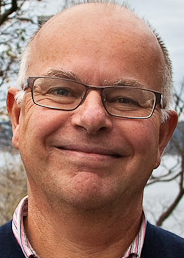Nigel Parton, Ph.D.
Professor in Applied Childhood Studies
Centre for Applied Childhood Studies
University of Huddersfield
Email: n.parton@hud.ac.uk
Web: http://www.hud.ac.uk/research/staff/profile/index.php?staffid=293
Phone: 01484 472761
Nigel Parton is a qualified and registered social worker and Professor
in the School of Human and Health Sciences at the University of
Huddersfield in northern England and Visiting Professor at the
University of Edinburgh, Scotland. Apart from a 10 month period in the
early 1990s when he was Professor in Child Care Studies at the
University of Keele, he has worked at the University of Huddersfield for
over 30 years. From 1994 – 2006 he was Professor in Child Care and
Director of the Centre for Applied Childhood Studies and led and
co-ordinated social work research.
He is the author and co-author of 20 books and over 100 chapters and
journal articles on the broad areas of child welfare, child protection
and social work including (with Patrick O’Byrne) Constructive Social
Work: Towards a New Practice (2000; Palgrave/Macmillan). His latest
books are (co-edited with Neil Gilbert and Marit Skivenes) Child
Protection Systems: International Trends and Orientations (2011; Oxford
University Press) and (with Anne Stafford, Sharon Vincent and Connie
Smith) Child Protection Systems in the United Kingdom: A Comparative
Analysis (2011; Jessica Kingsley) He is currently working on a book with
the provisional title of The Politics of Child Protection to be
published by Palgrave/Macmillan in 2014.
He has a BA (Hons) in Applied Social Studies from the University of
Bradford; and MA in Social Service Planning from the University of Essex
and PhD from the University of Huddersfield.
He has particular interests in the theory and practice of social work
and human services and the politics and policy of child welfare and
child protection. All his work is located in a broad constructionist
framework. He has been a member of the Global Partnership for
Transformative Social Work since its establishment in the late 1990s.

